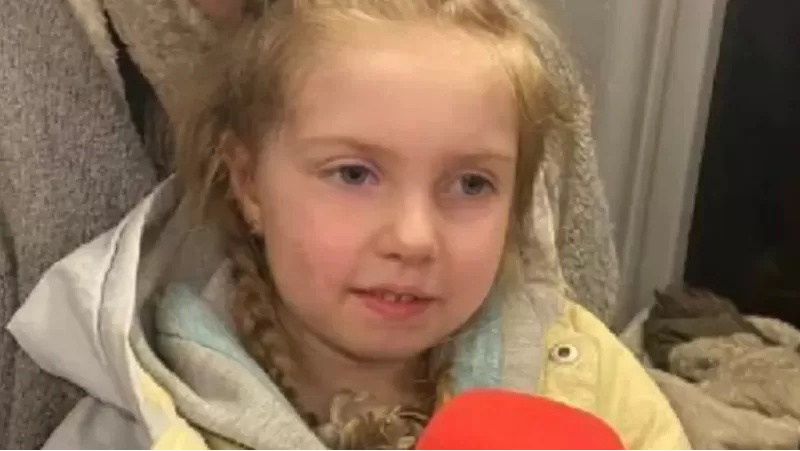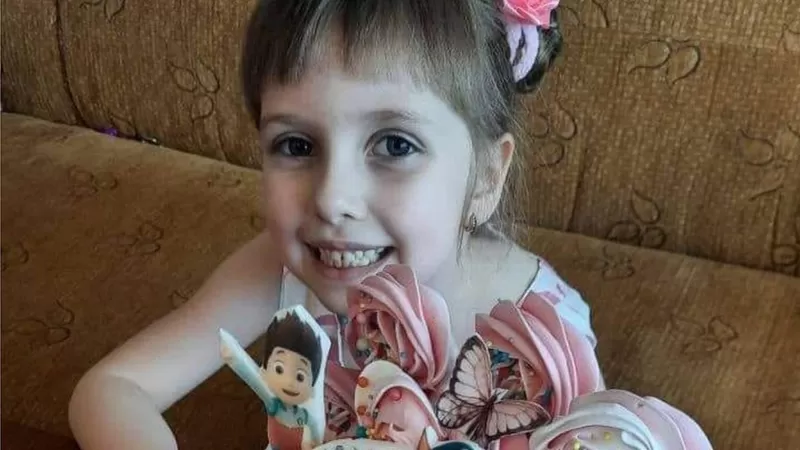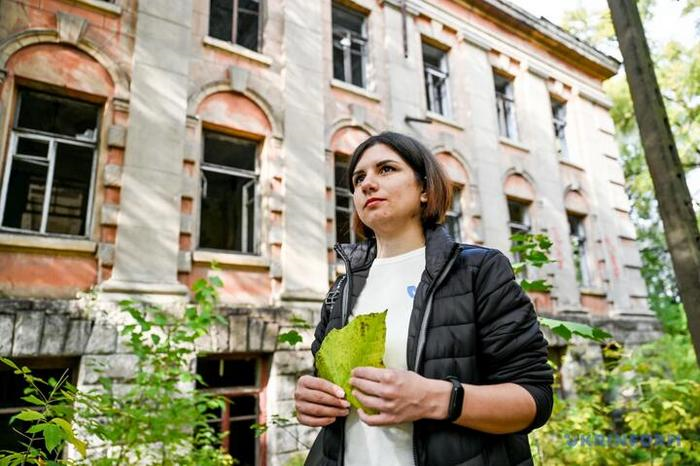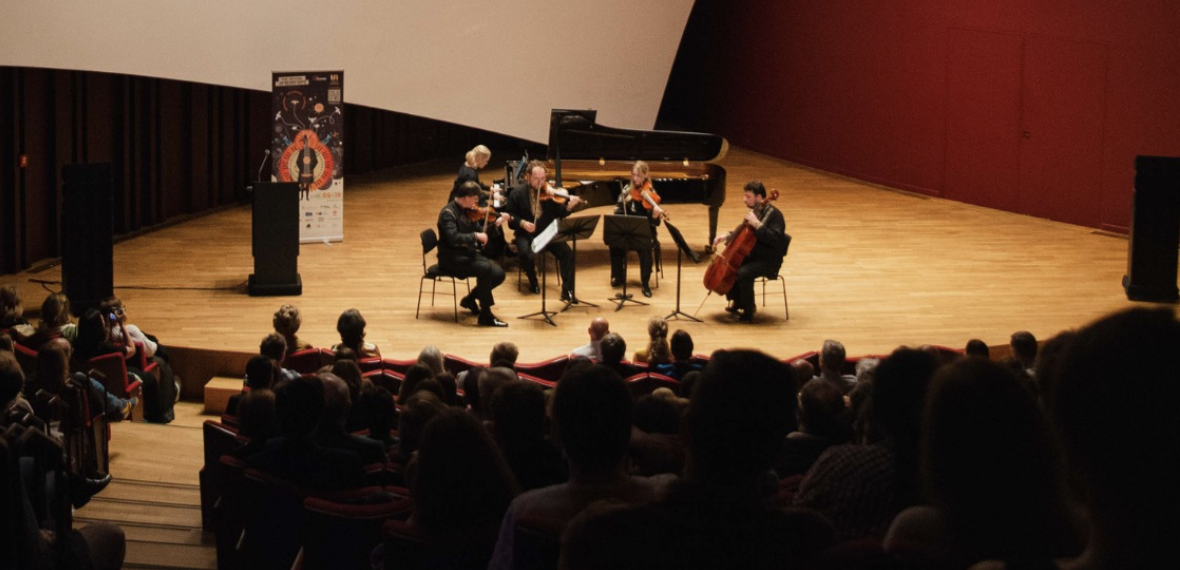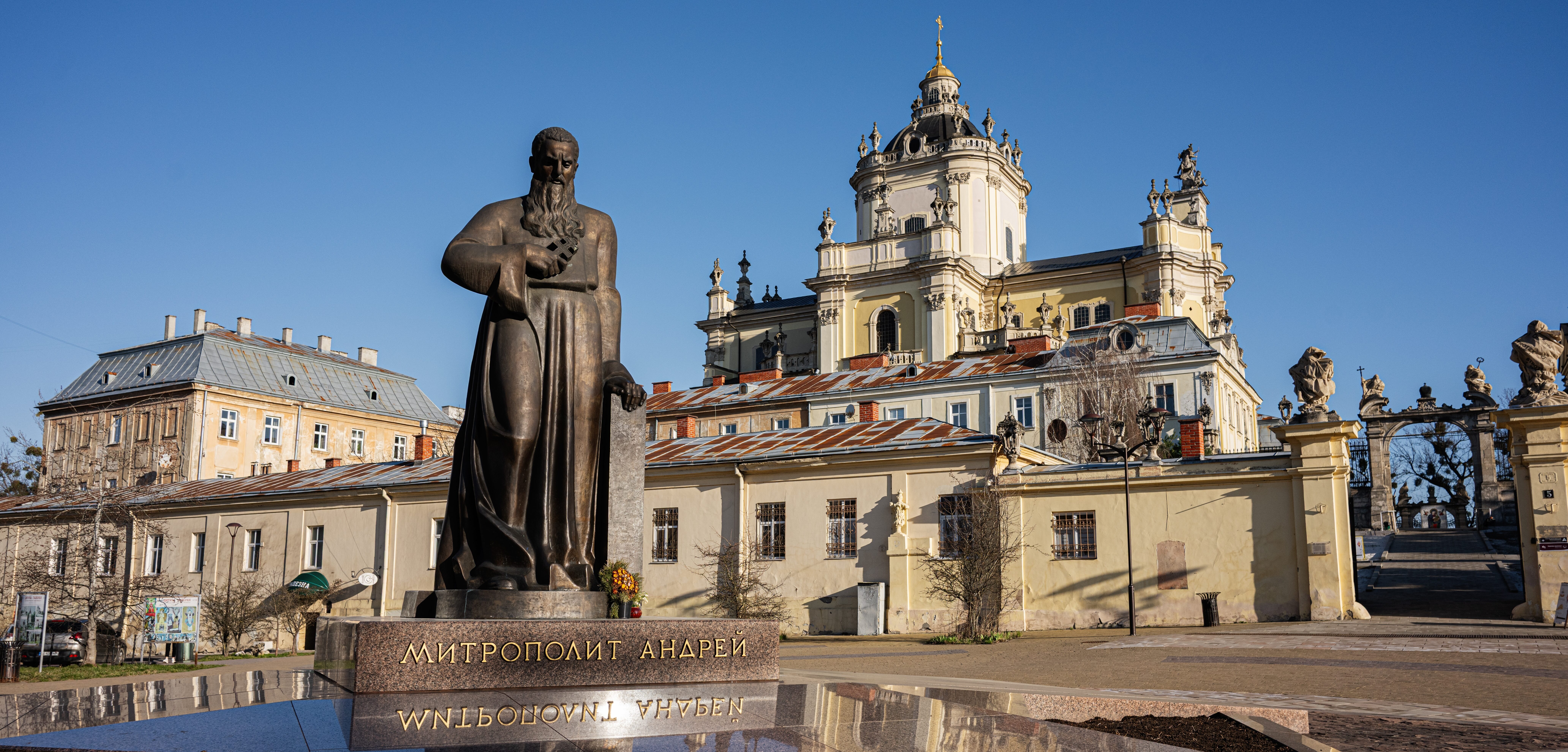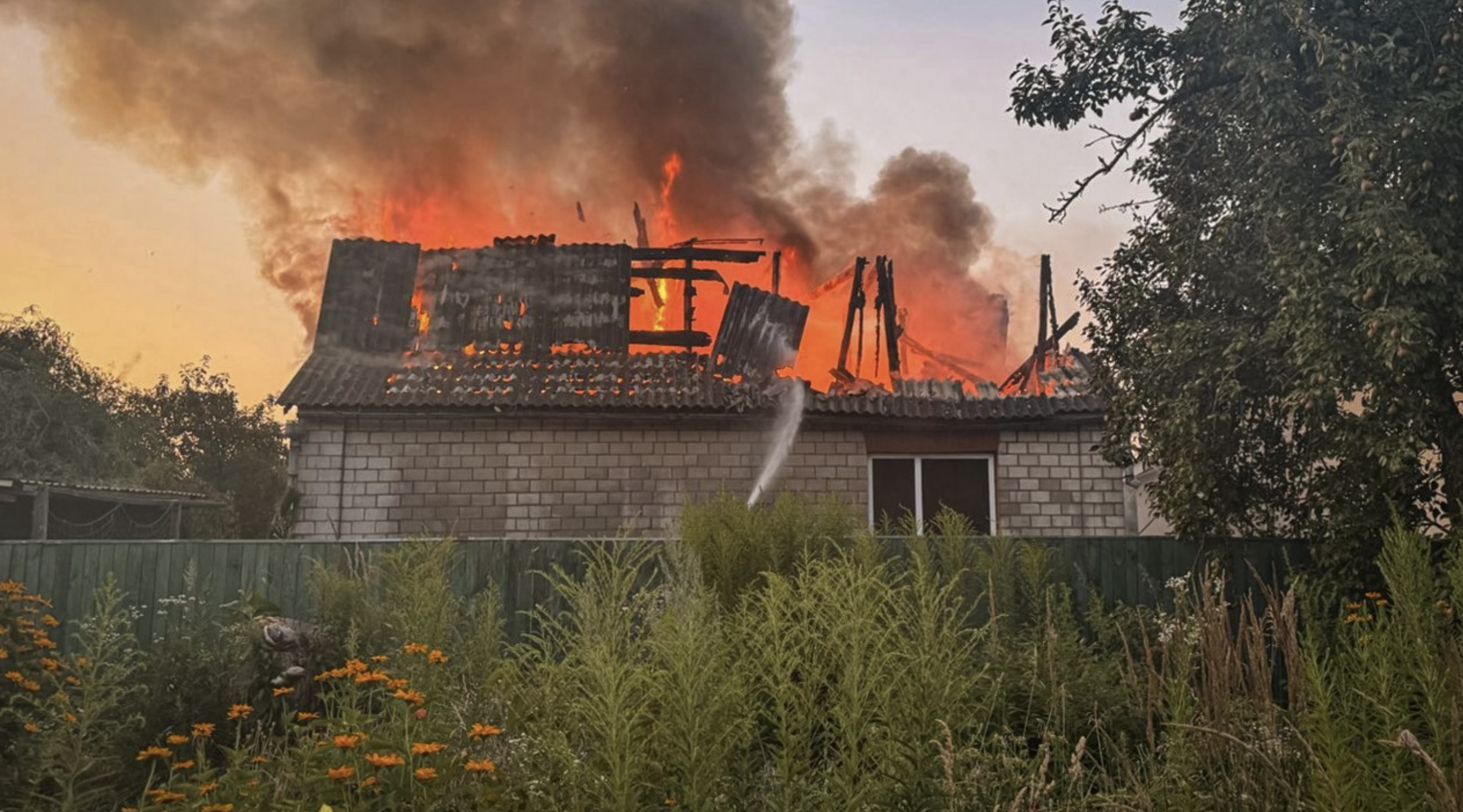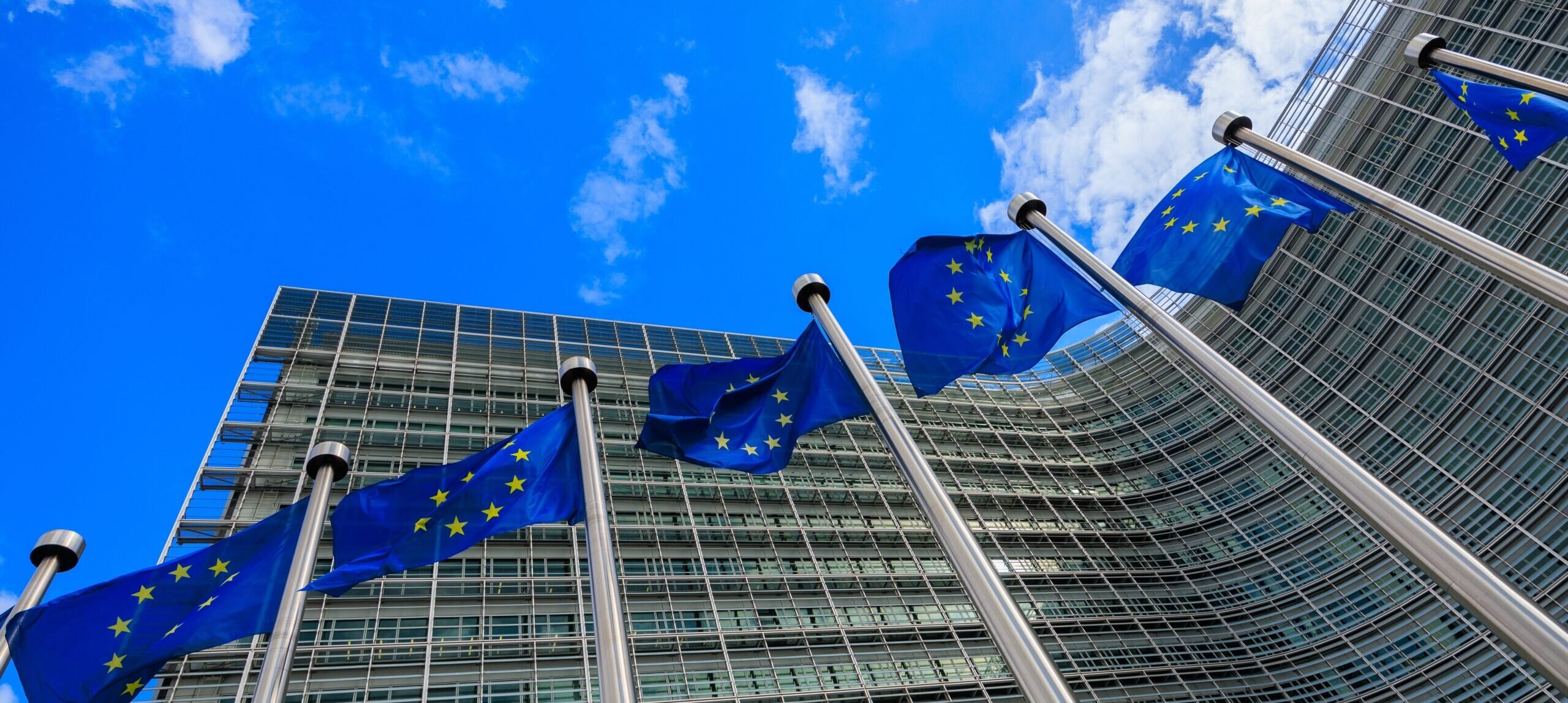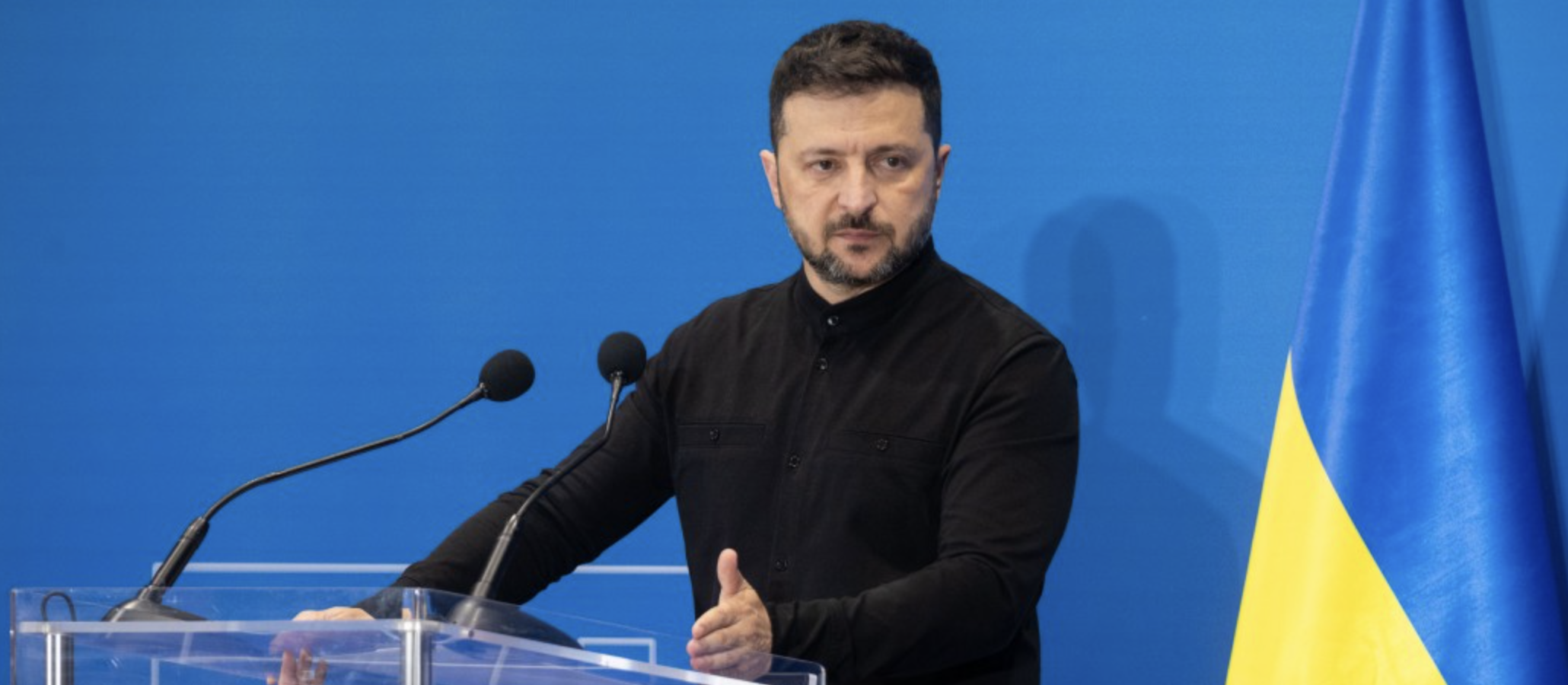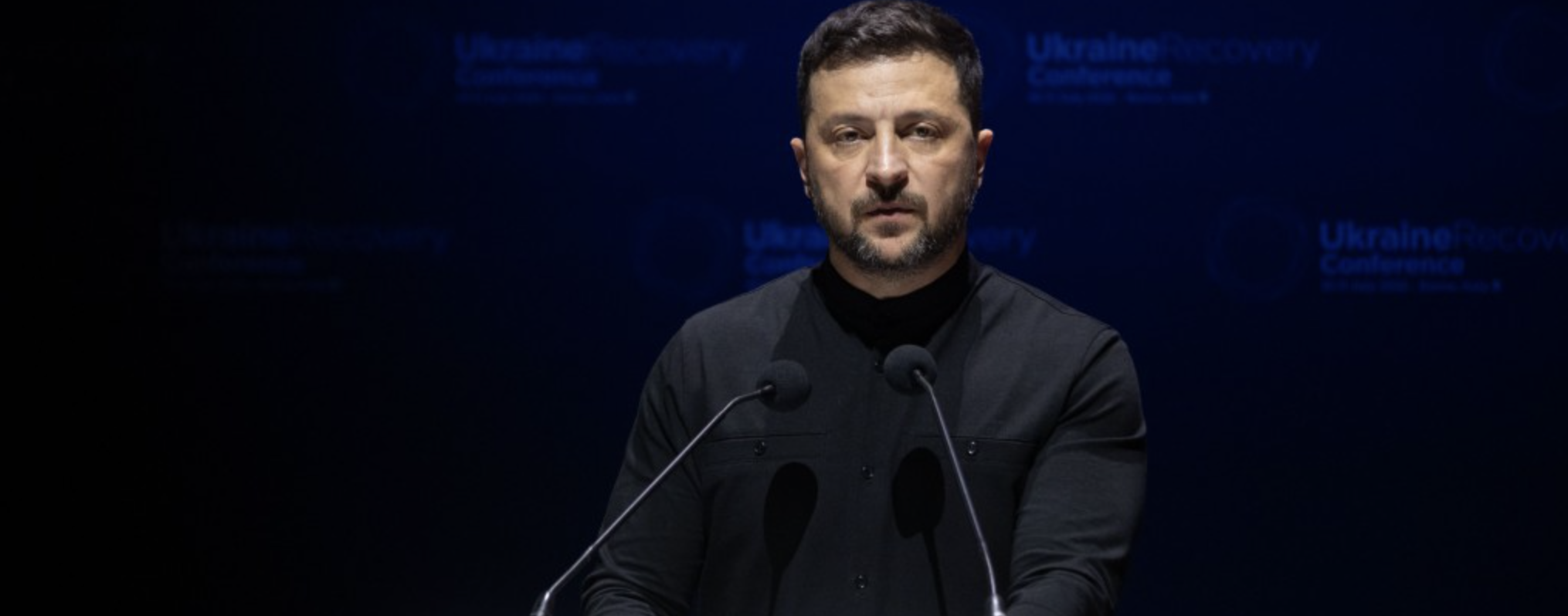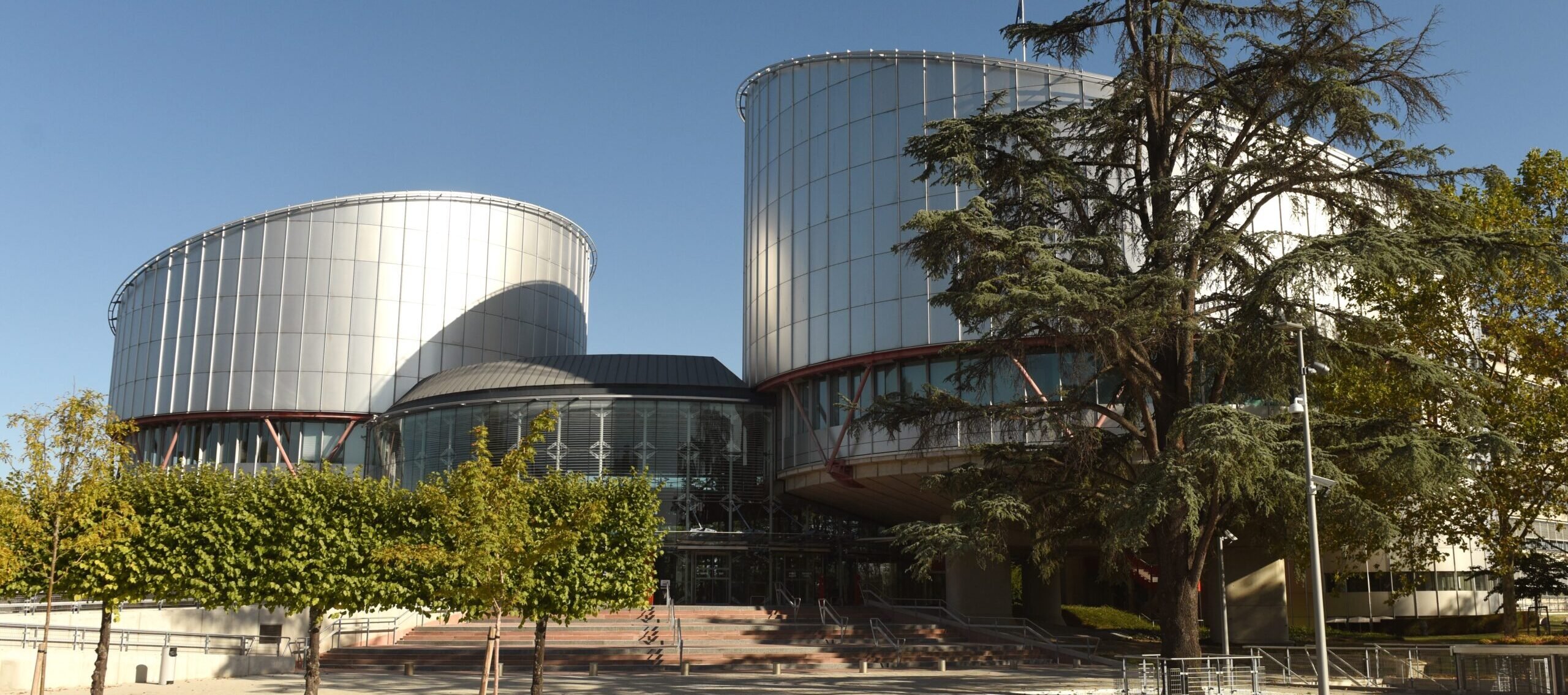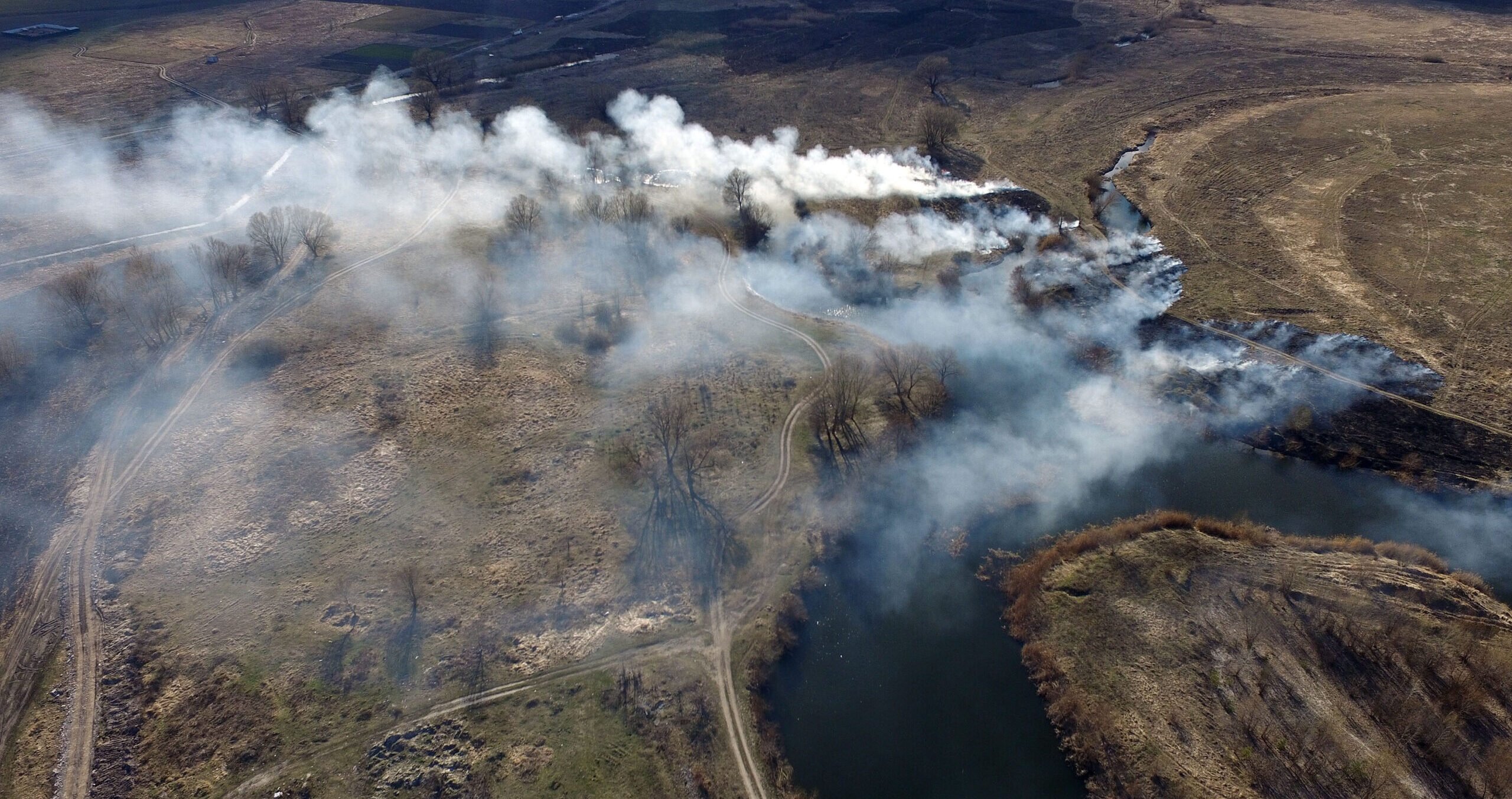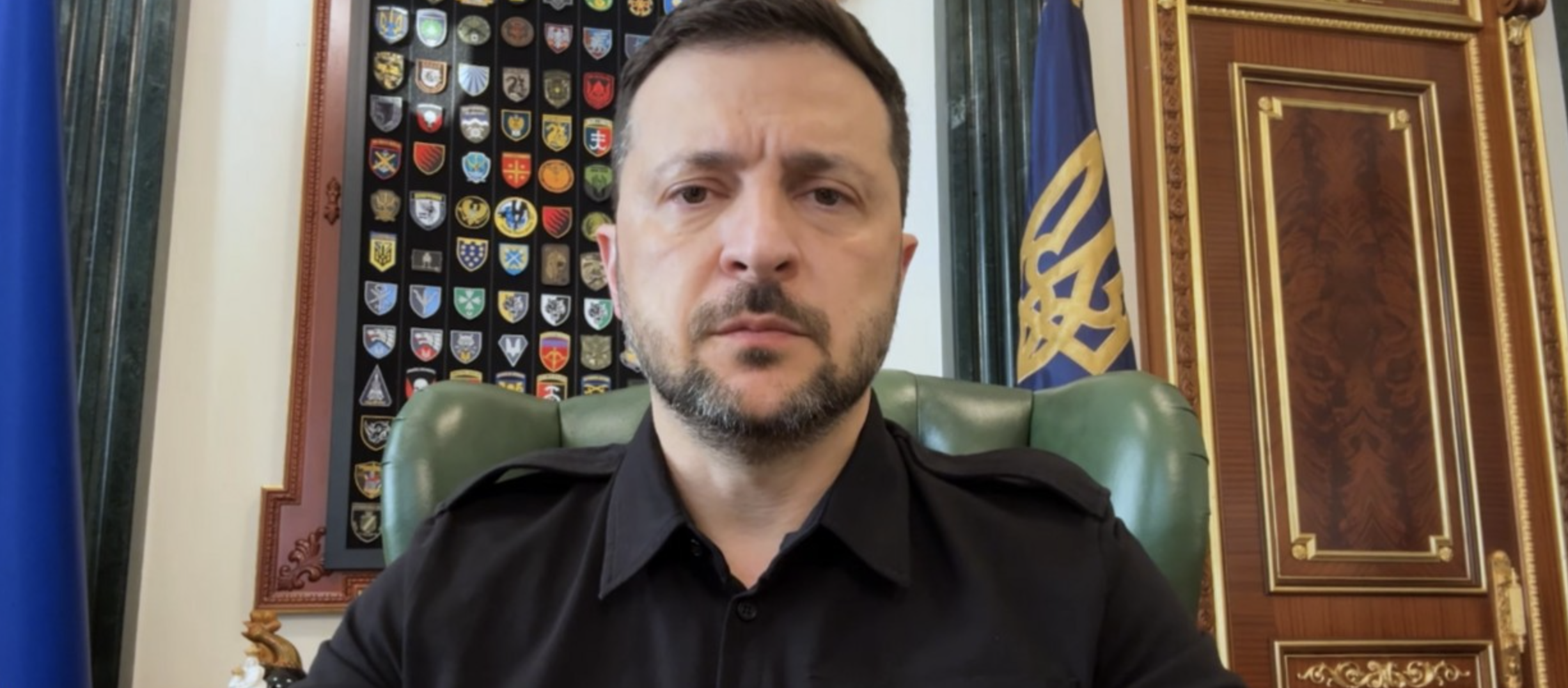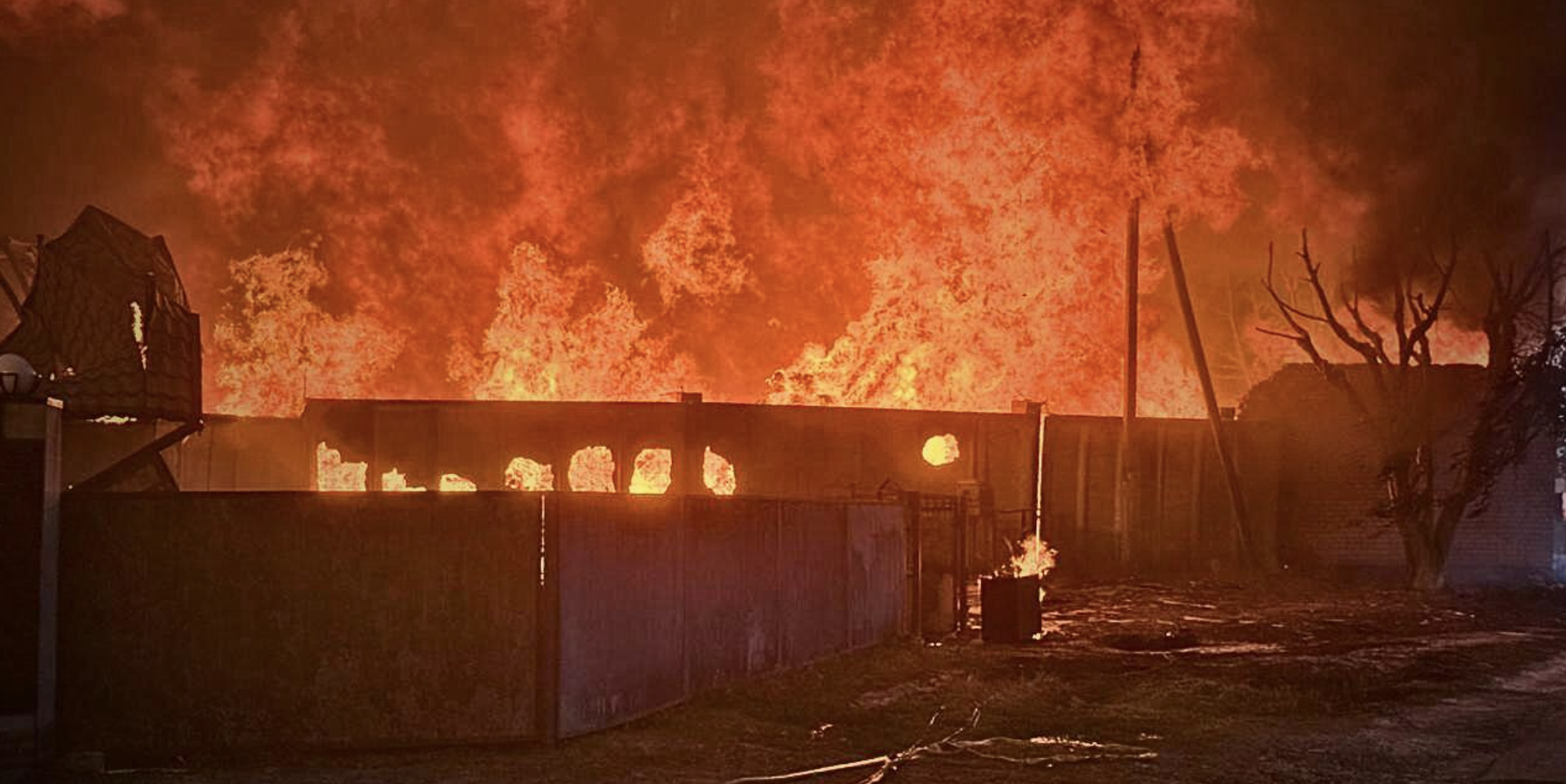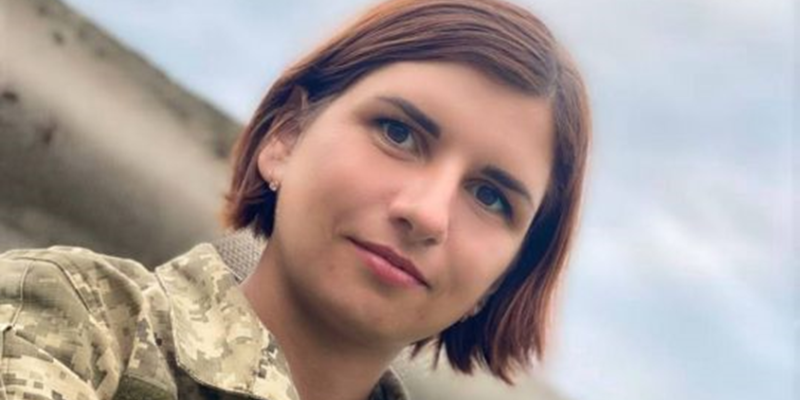
Victoria Obidina hasn’t seen her daughter for almost six months. She spoke to her only once on October 3 for Alisa’s fifth birthday. The russian butchers allowed her to call Poland, where Alisa had moved with her grandmother. The conversation lasted less than a minute.
Victoria is a 27-year-old paramedic released as part of the exchange of prisoners of war. On October 17, she set foot on the free territory of Ukraine and she immediately called Poland again.
“I called my mother and told her that I was finally exchanged. I also talked to my daughter. She recognized my voice. I said that I miss her very much and love her. Now every day Alisa asks when we will finally meet,” Victoria told Fakty.
However, the meeting between mother and daughter will have to wait, probably for a month. “All of us were left without documents after the capture and are undergoing rehabilitation. Fortunately, I don’t have any serious health problems after what I experienced. I take sedatives because I have problems with sleep,” says the former prisoner of the russian occupiers.
Four-year-old Alisa became famous around the world thanks to a viral video filmed by Azovstal defenders, in which she says that she lives in a bunker and wants to go home, and sends greetings to her grandmother.
When the russian orcs began the full-scale invasion, Victoria was serving in the Armed Forces as a paramedic. On March 20, she and Alisa moved into the bunkers at Azovstal where they helped the wounded.
“My daughter bravely survived that period, she even asked to help,” says the doctor. “And what do you think, Alisa went around and handed out medication to everyone who reached out. She shortened my working hours. In the bunker, she had several toys with her. She had a flashlight, she had a phone, sometimes even the Internet to watch cartoons. We wrote the alphabet in a notebook so she wouldn’t forget, drew and read fairy tales.”
The very video that made Alice famous played a cruel joke on them and separated the mother and her daughter.
On May 5, the Red Cross organized a green corridor for civilians. Victoria came out in civilian clothes without documents that would give away her military status. But the occupiers recognized Alisa. “There was no way to hide, because Alice was standing next to me.”
They lived in a tent city for two days. Then the Red Cross allowed Victoria to call her mother, who said to send Alisa to Zaporizhzhia where Victoria’s uncle would pick her up.
“On May 7, I packed my daughter’s things. There were a lot of people near the bus, so I sat there too in the crowd. But they took me to Manhush. Alice was given permission to go to the controlled territory of Ukraine and one of the passengers agreed to take care of her.”
From Zaporizhzhia, Alisa was taken to her grandmother, who took the child to Poland where she lives with Victoria’s stepfather. Victoria was sent to police interrogation.
“There they beat me with rubber bats because they wanted to get information about my co-defenders. They blindfolded me and tied my hands and forced me to run. And they deliberately told me the wrong way, so that I would hit my head against a closed door. When they realized that I would not tell them anything useful, they just put me in a cell,” Victoria recalls.
The story of Alisa and her mother moved people. On May 19, a petition appeared on the Change.org platform in different languages. The “Return Alisa to her mother!” petition, which the Ukrainian World Congress promoted, gathered almost 70,000 signatures.
By July 1, the medic was in Olenivka prisoner camp, the same place where on July 29, russian barbarians killed more than fifty Ukrainian prisoners of war with an explosion. “At the time of the explosion, we were in another room where I was in a double cell with ten other women. There was nowhere to walk, we slept on the floor. Instead of windows, there was an iron screen that barely let air in. We drank moldy water from a puddle. For breakfast they gave us pearl barley, for lunch borsch made of water and a few bits of potato and cabbage. For dinner – barley with industrial waste and mixed with fish. No medical assistance was provided.”
In captivity, Victoria constantly thought about how she must survive for the sake of her daughter. Today, they communicate through video. During these six months, Alisa has grown up a lot. “After everything, her thoughts became different, well beyond someone her age,” says her mother. In Poland, Alisa studies English, Polish and Ukrainian. ”In Poland, my daughter attends kindergarten and has made new friends. But home is always the best. You just can’t imagine how much I want to be with her. I will never let her go again.”
Alisa’s mom is going to Poland. “But after the end of the war, of course I will return to Ukraine. I think we will live in Dnipro,” Victoria Obidina confidently tells BBC News Ukraine.
The article uses interviews and photos published in Fakty newspaper and on the BBC News Ukraine website.
